Best AskNicely alternatives
AskNicely is an online survey software that helps businesses collect feedback from customers using the Net Promoter Score® (NPS®) method. AskNicely has several useful features, including real-time dashboards, SMS analytics, live reports, and one-click integration with other platforms.
Everything in AskNicely is configurable, from wording to logos and domain names to languages. Users of the software can track their Net Promoter Score by channel, by product, or by segment. Once the data is compiled, users can share it using the dashboards in AskNicely’s reporting suite. The platform also allows users to respond directly to customer feedback.
While AskNicely is a robust platform, it can be cost-prohibitive, especially for smaller businesses. Another downside is that a service level agreement (SLA) isn’t available except at the highest price point. Fortunately, there are alternatives to AskNicely that could be better suited to your business’s needs.
Pro Tip
Gather real-time customer feedback with Jotform AI Agents, providing instant assistance and ensuring customer insights are captured while enhancing their experience.
Comparison chart
| Platform | Features | Pricing | Customer Service | Unique Selling Points |
|---|---|---|---|---|
| Jotform | Library of 1,300+ survey templates; Jotform Tables to manage and organize responses | Free to $99 per month, quotes for Enterprise plan available upon request | 24-7 customer support via web form; Enterprise plan with real-time chat support | Jotform Tables; 150-plus integrations; no-code app creation with Jotform Apps |
| Qualtrics | NPS, CES, and CSAT surveys | On request | Support available through Qualtrics’ Customer Success Hub (web support) | Predictive intelligence |
| SurveyMonkey | Template library; online form builder; Help Center with online tutorials | Salesforce and Slack integrations; lots of question types; crosstab reports | 24-7 expedited email support | Low-priced entry point; AI Genius Engine |
| Alchemer | Salesforce and Slack integrations;lots of question types; crosstab reports | Starting at $55 per user per month | Integration with more than 20 platforms from CRM to analytics to contact management; branching and skip logic | Tableau integration; R-scripting |
| Typeform | Highly customizable surveys; large template library | Starting at $25 per user per month for the Basic plan | Basic plan with Standard Support Plus plan with Priority Support Business plan with live chat | Ability to add rich media into surveys |
| Qualaroo | Free plan business plan starting at $19.99 per month | Phone, chat, and email support dedicated success manager with highest price tier | Phone, chat, and email support dedicated success manager with the highest price tier | AI-powered sentiment analysis |
| Sogolytics | Drag-and-drop interface; branching and skip logic;NPS, CSAT, and CES | Easy-to-use interface; integration with the entire Google Suite of tools | 24-7 support via webform | Robust automation and analytics |
| Medallia | Easy interface; flags feedback based on keywords; widgets (Google integration) | Experience Data Record pricing model | Email, phone, and web form support | Lots of integrations and Medallia XChange app library |
| Retently | Segmentation; integration with Slack, Salesforce, etc; branching logic; translation services | Basic at $25 per month; Pro at $99 per month | Email support for Basic plan; live chat added for Pro plan; dedicated resource for Enterprise | Data migration included with all price tiers |
| Google Forms | Easy-to-use interface; integration with entire Google Suite of tools | Free | Support via the Google Workspace Learning Center | Free platform |
1. Jotform
Jotform, a feature-rich, cost-effective alternative to AskNicely, provides the tools to build a customized customer feedback system. With more than 700 customizable feedback form templates to choose from (including NPS surveys), Jotform gives your business a quick, easy way to start collecting customer opinions. Users can also bundle forms together in no-code custom apps using Jotform Apps.
You can integrate forms not only with CRMs, analysis platforms, social media channels, and data management apps, but also with chat tools like Slack, payment systems like PayPal, and file storage systems like Google Drive and Box. Jotform Tables records all form submissions, letting you manage and track all customer experience information from a single hub.
Jotform has a five-tier pricing structure. The Starter tier is completely free with a five-form limit with 100 monthly submissions. Gold, the most expensive tier before Enterprise, is under $100 per month and offers you 100 forms and 10,000 submissions per month. All tiers through Gold are for single users. The Enterprise tier, available for custom pricing, removes all form, submission, storage space, and user limits.
Jotform’s numerous successful case studies indicate that it has satisfied customers across many different industries. The Tinley Park Public Library, for example, used Jotform not only to go digital but to streamline feedback collection from the library’s patrons.
2. Qualtrics
Like AskNicely, Qualtrics offers numerous solutions — not just surveys. But one of its main offerings is its survey tool. Large brands such as UnderArmour, Samsung, Porsche, and Spotify use Qualtrics to collect customer feedback.
Qualtrics has several strengths that set it apart from its competitors. One of these features is its use of predictive intelligence, which can help make raw data actionable by providing insights using statistics combined with artificial intelligence.
Qualtrics also allows you to create surveys using customer satisfaction score (CSAT) and customer effort score (CES) methods as well. Qualtrics ExpertReview gives you feedback on your survey questions as well as survey design feedback, so you can make constructive edits to your survey as you build it.
For all of Qualtrics’ features, some users have reported a less-than-intuitive interface and difficulty in exporting data from other applications into Qualtrics.
Qualtrics has a subscription-based model, and pricing is only available upon request. The price is based on a number of variables, including features selected, amount of customer data, and number of users.
Qualtrics is suitable for businesses of all sizes. Garner Research named it one of the best Voice of the Customer platforms in 2021.
3. SurveyMonkey
SurveyMonkey’s popularity derives from features like its visual editor, which lets the user construct visually pleasing surveys by simply dragging and dropping elements. SurveyMonkey’s language translation feature also makes it easy for a single survey to reach a wide audience.
The platform has also embraced AI with its SurveyMonkey Genius, which helps users predict completion rates and survey effectiveness. SurveyMonkey also supports integration with major platforms such as HubSpot and Salesforce.
One differentiator is its affordability. Plans start at $25 per user per month for team plans, with a minimum of three users. SurveyMonkey offers quite a bit for this low price, such as 50,000 responses per year, 24/7 expedited email support, and integration with other collaboration apps.
While SurveyMonkey’s entry price point is low, adding advanced functionality like user management, account control, and enhanced security features requires upgrading to the Enterprise plan, which adds considerable costs.
SurveyMonkey is suitable for businesses of all sizes. One of those users, Audi Business Innovation, used SurveyMonkey to collect data from its internal teams as part of its user experience process.
4. Alchemer
Alchemer (formerly SurveyGizmo) directly states on its homepage that it’s for those customers who’ve “outgrown SurveyMonkey” and don’t “want the expense and complexities of Qualtrics.”
Many of the services it offers are similar to other platforms, such as prebuilt survey templates, language translation, analytics features, a drag-and-drop interface that requires no coding, and integrations with Salesforce, Slack, and Tableau.
Alchemer also allows users to develop surveys containing branching logic for more detailed response data, auto-complete text for a better customer experience when filling out surveys, and skip logic to make sure customers aren’t presented with unnecessary questions.
Alchemer promises a less expensive alternative to Qualtrics, and it delivers with a $55 per user per month starting point. While this price point offers bare-bones functionality, it does give customers a cost-effective entry point.
Alchemer has a lot to offer, but it has some limitations. Users have mentioned that it’s hard to bulk upload survey questions. This functionality would save users time from having to create survey questions one by one.
Digital casino gaming company Product Madness has used Alchemer to improve player retention by leveraging Alchemer’s reporting capabilities to generate actionable data more easily and frequently.
5. Typeform
Typeform is another feature-rich and cost-effective alternative to AskNicely. Typeform offers many of the features that other platforms offer, such as branching and skip logic, pre-designed survey templates, and real-time tracking of results. Typeform has a prestigious list of clients across a variety of industries, such as Airbnb, Hermes, and HubSpot.
One of Typeform’s differentiators is the ability to add rich media (audio, video, animation, etc.) to surveys. Another of Typeform’s strengths is its wide variety of integrations. It integrates with CRM platforms like Salesforce and HubSpot, but it also integrates with chat clients like Slack, analytics tools like Google Analytics and Google Tag Manager, and presentation tools like Canva.
Typeform offers four tiers of plans (Basic, Plus, Business, and Enterprise). The Basic plan starts at $25 per month, but it lets you create unlimited forms and unlimited questions. It does limit you to 100 responses per month, though. Moving up to 10,000 responses per month still comes in under $100.
Educational technology company 100Mentors used Typeform integrated with HubSpot to increase conversions as well as spend less time on menial tasks like data entry. Using the integration allowed them to bring Typeform responses directly into HubSpot, streamlining what used to be a manual process.
6. Qualaroo
Qualaroo is a survey tool like many other survey tools mentioned here. It offers a survey templates library, email and SMS support, and numerous question types. It also integrates with CRM platforms such as HubSpot, Salesforce, and Mailchimp.
But Qualaroo also offers some important features that set it apart from other platforms. Qualaroo’s AI implementation focuses on sentiment analysis. This allows quantitative data to be converted into emotional analytics that users can respond to in real time.
Windshield repair company Belron (owner of the SafeLite brand) uses sentiment analysis to combine the Net Promoter Score with emotional feedback to get a complete picture of how customers view their services.
Qualaroo has a free plan and a business plan plus an option that lets you remove “Powered by Qualaroo” branding for an additional $300 per year. The free plan offers everything the Business plan provides; it just sets a limit of 100 monthly responses. The Business plan is $19.99 per 100 responses per month.
While Qualaroo gets high marks from its users, they’ve expressed a desire for the application to allow them to create custom reporting and charts.
7. Sogolytics
Sogolytics (formerly SogoSurvey) is a customer experience management platform that provides actionable insights to businesses in real time. Sogolytics provides two distinct tools, one for customers (SogoCX) and one for employees (SogoEX). Sogolytics’ clients span for-profit and nonprofit companies such as UNICEF, PepsiCo, Marriott, and Sony.
The SogoCX customer experience platform focuses on improving conversion rates, streamlining data management, and gaining a deep understanding of customer feedback. SogoCX is designed to measure important metrics such as Net Promoter Score (NPS), customer satisfaction score (CSAT), and customer effort score (CES).
Sogolytics offers four pricing tiers: Plus, Pro, Premium, and Enterprise. The Plus tier starts at just $25 per month and includes features like branding, scoring, AI for text question development, and skip logic. Advanced features such as expanded question types, visual reporting, and translation services require higher-priced tiers.
Users have rated Sogolytics highly; however, they’ve expressed frustration at not being able to add survey questions following a survey’s publication.
The Association for Utah Community Health used Sogolytics’ analytics features to better understand the needs of their patients as well as streamline and automate report creation.
8. Medallia
Medallia offers in-app and on-website surveys with an eye on improving customer experience. Like AskNicely, Medallia focuses on Net Promoter Score surveys. One of Medallia’s features that sets itself apart from competitors is widget integration, which allows respondents to give their feedback using Google surveys.
Medallia also offers hundreds of integrations that can greatly extend the functionality of the application. All the usual suspects are there (Salesforce, Slack, Workday, Jira, etc.), but Medallia also has the Medallia XChange, which offers customizable apps for specific industries such as education, banking, retail, or manufacturing that users can add to Medallia.
One interesting aspect of Medallia is its pricing structure, called the Experience Data Record pricing model. What you pay is based on the amount of Experience Data Records processed, which includes a combination of data, notes, surveys, and responses for a single customer interaction. The goal of this pricing model is to avoid restrictive “lower tiers” and make every feature of the software available to all users.
Convenience store giant 7-Eleven used Medallia’s in-app capabilities to deploy the 7Rewards app, which allows them to get customer feedback even when customers aren’t in the store.
9. Retently
At first glance, Retently doesn’t offer much to differentiate it from any other survey platform. But one feature that sets Retently apart is the ability to record and prioritize customer requests. Using Retently’s graphical reporting features, users can see what’s most important to customers and address it accordingly.
Another nice feature of Retently is that it includes data migration in all pricing packages. This means that moving your data from another platform is included in the setup process. Retently’s pricing packages are simple, with Basic starting at $25 per month and Pro starting at $99 per month. It also offers an Enterprise package, with pricing available on request. One of the limitations of Retently is that its Salesforce integration is only available with the Enterprise plan.
10. Google Forms
Google Forms is an alternative to AskNicely if you’re looking for simplicity. But simplicity doesn’t necessarily translate into a lack of features.
Google Forms is a part of the extensive suite of tools that Google offers. Its interface lets you quickly and easily design forms and surveys that are shareable through links, and you certainly can’t beat the price point of completely free. It includes question types like multiple choice, drop-down select, short answer, date, time, and open-ended response.
Google Forms integrates with the entire Google suite of tools, but it also offers add-ons for platforms like Trello, Asana, and Mailchimp through the Google Workspace Marketplace.
That said, Google Forms does have its limitations. Google doesn’t offer templates to collect customer metrics like NPS and CSAT. Users would have to calculate those scores manually. And while it’s mobile-friendly, it doesn’t have the in-app features that other platforms offer. You’ll also need to use another product, like Google Sheets, to get more analytics and reporting capabilities.
Automation platform Zapier integrates with Google Forms and provides a tutorial on how you can add functionality to Google Forms using its software. For example, you can get notifications in real time when a user has completed your form, and you can automatically save that user’s information to a database or spreadsheet.
Net Promoter®, NPS®, NPS Prism®, and the NPS-related emoticons are registered trademarks of Bain & Company, Inc., NICE Systems, Inc., and Fred Reichheld. Net Promoter ScoreSM and Net Promoter SystemSM are service marks of Bain & Company, Inc., NICE Systems, Inc., and Fred Reichheld.
Photo by Karolina Grabowska

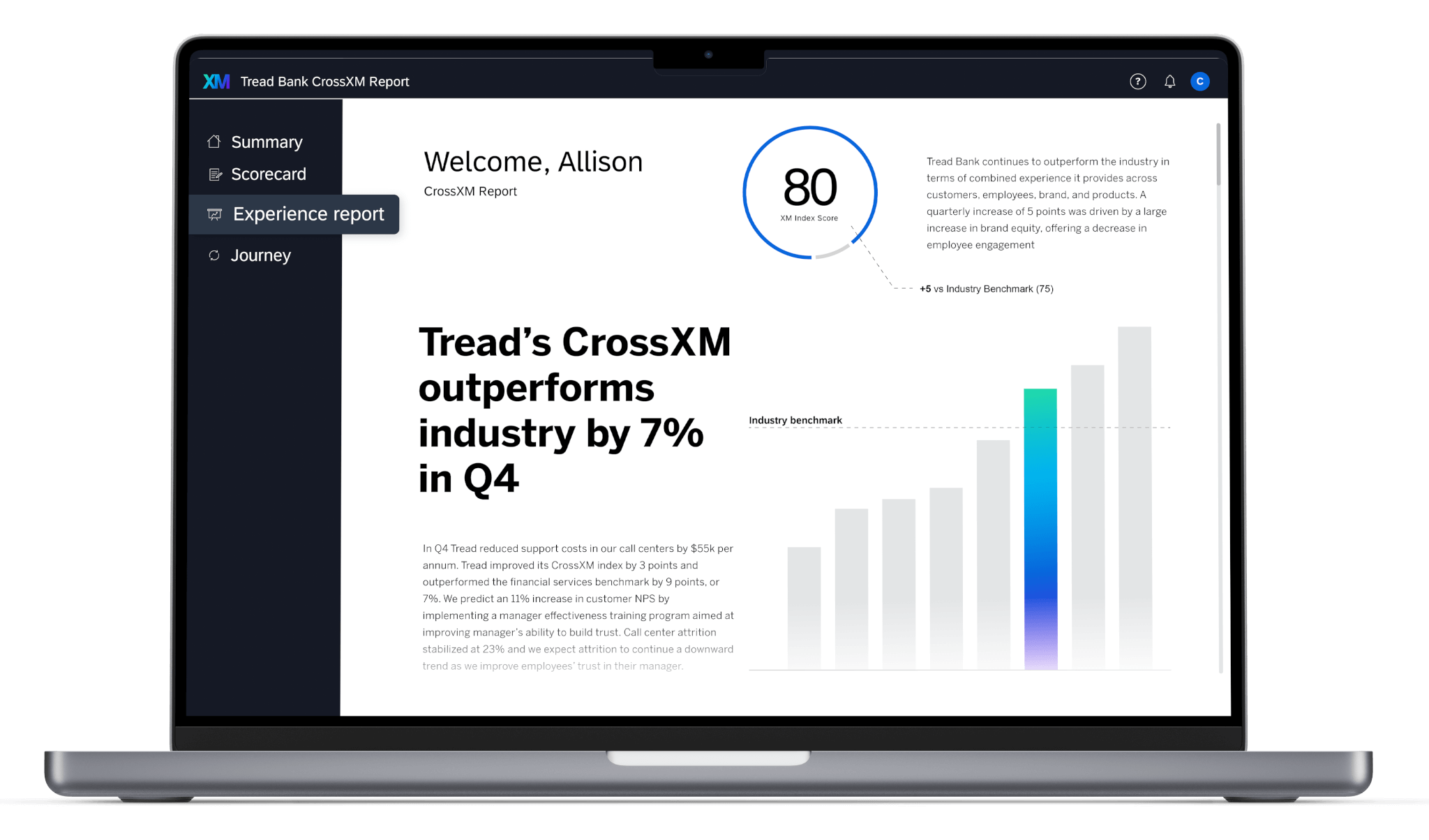
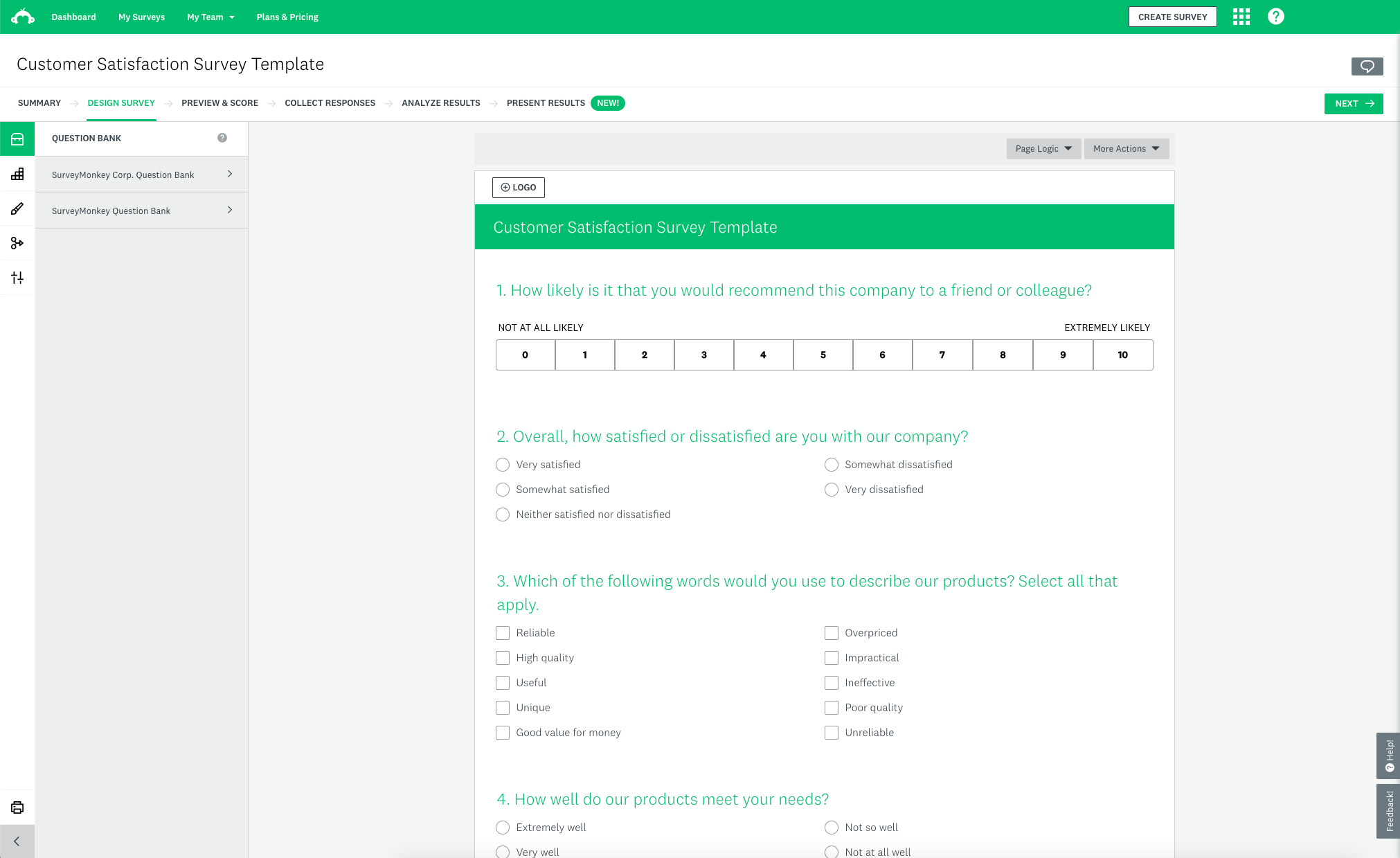
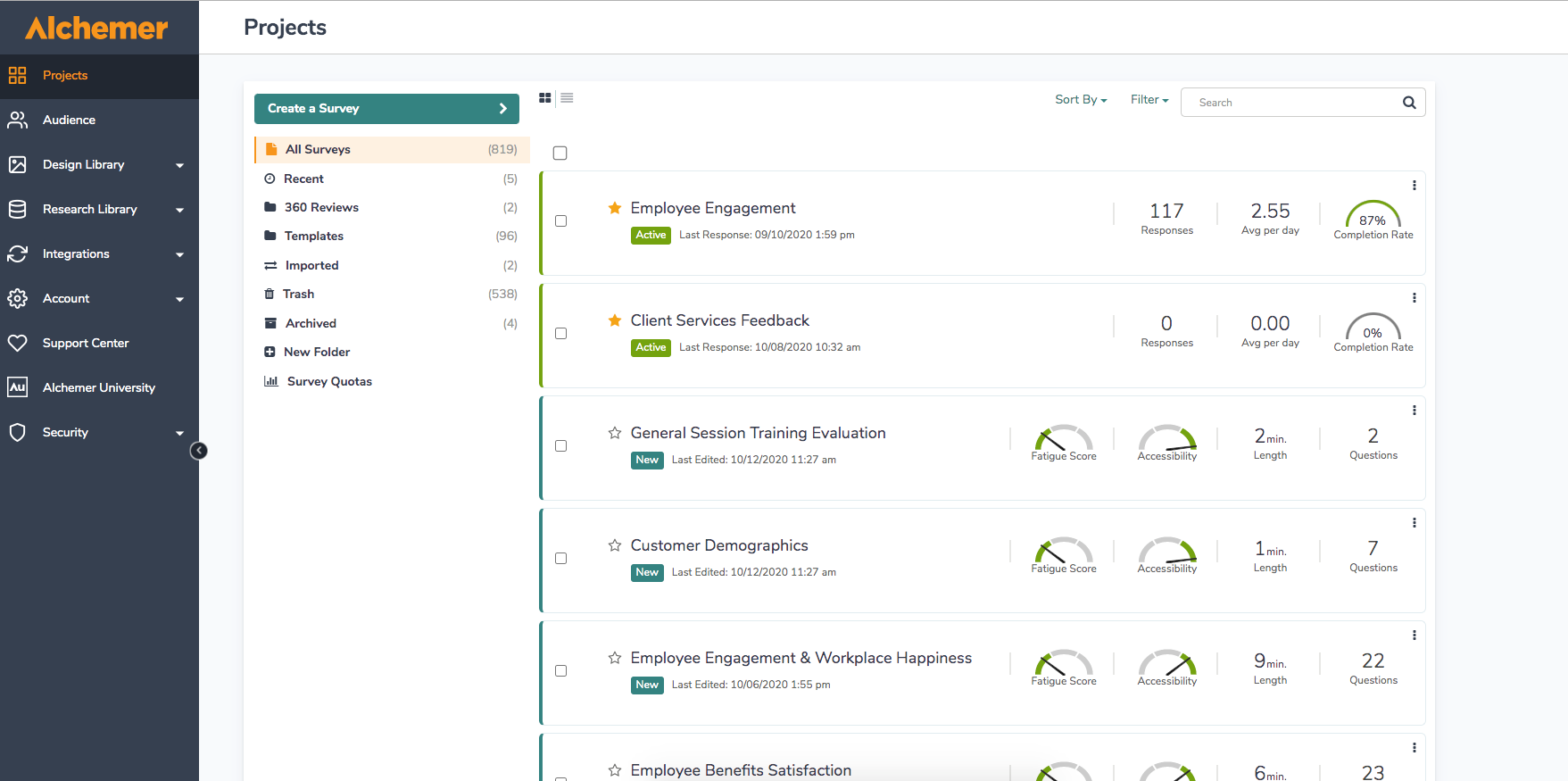
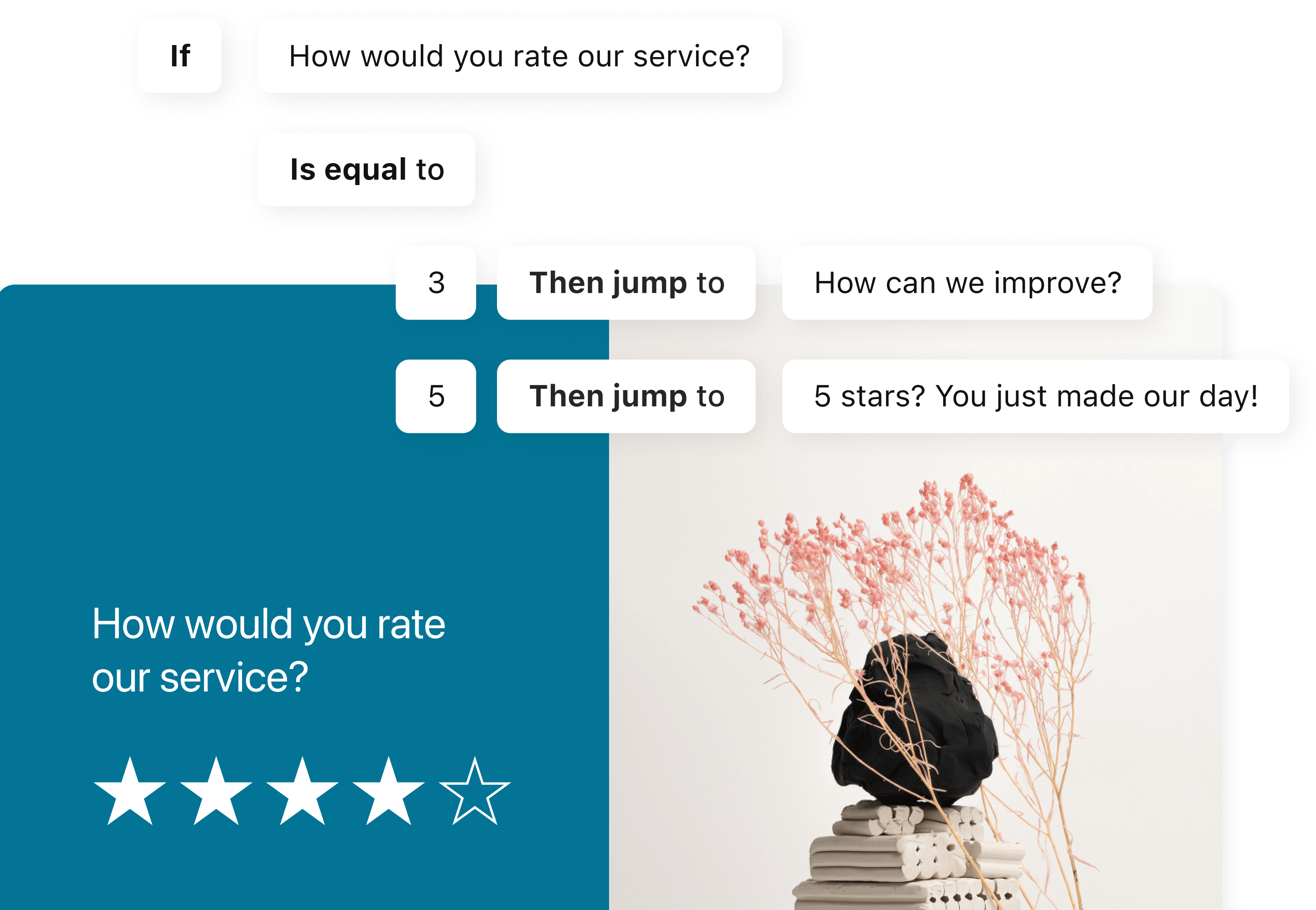
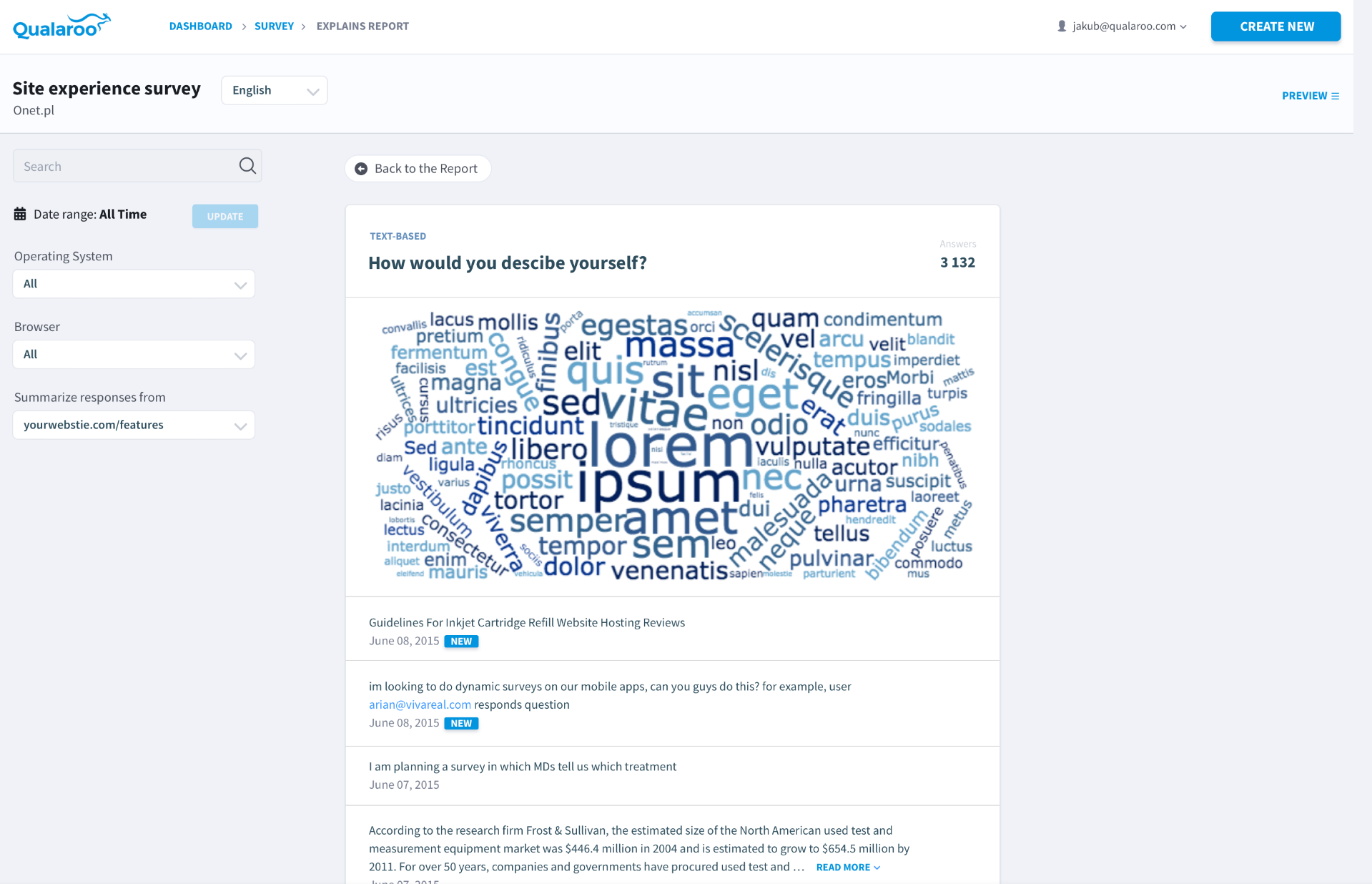
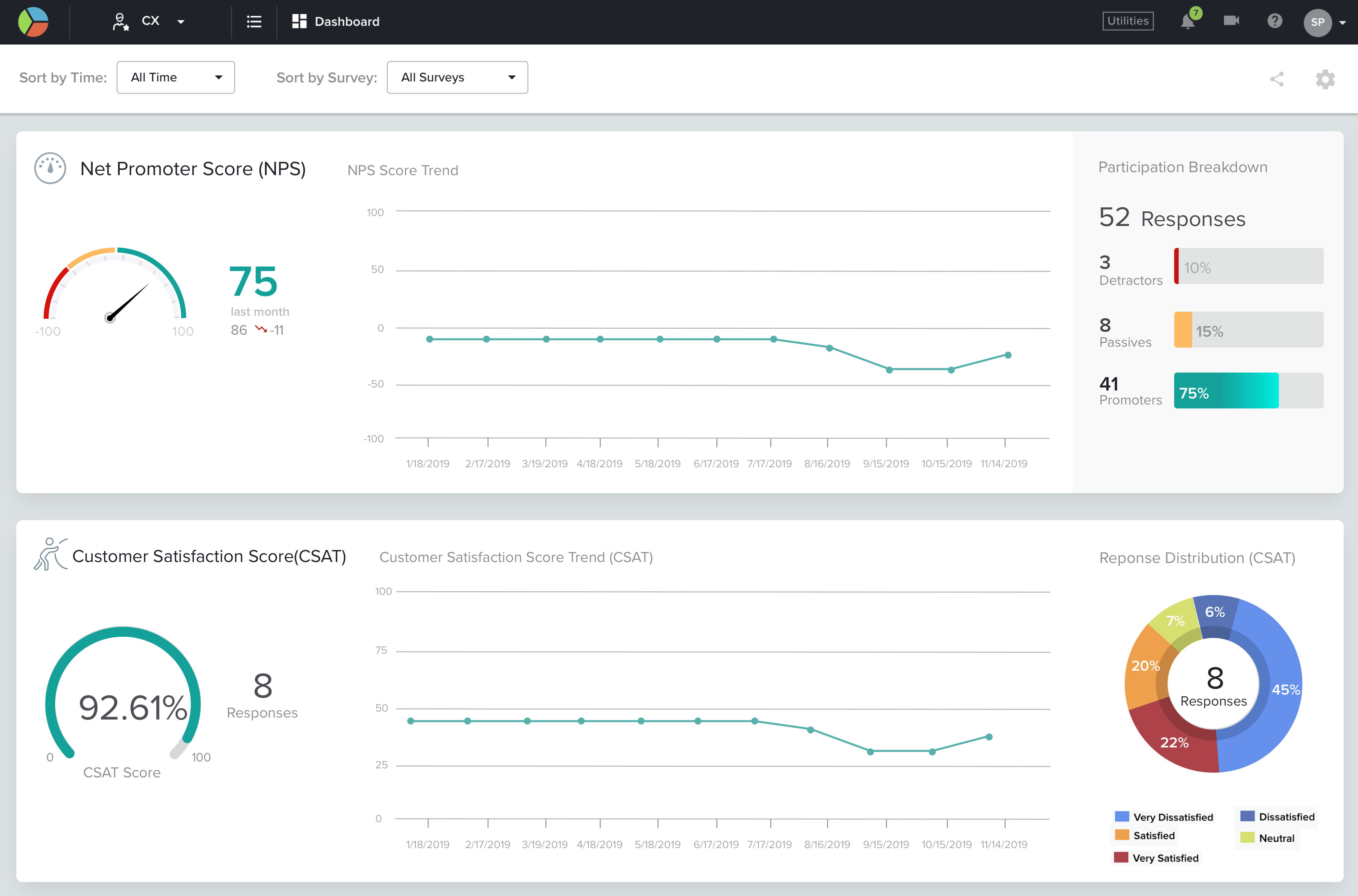
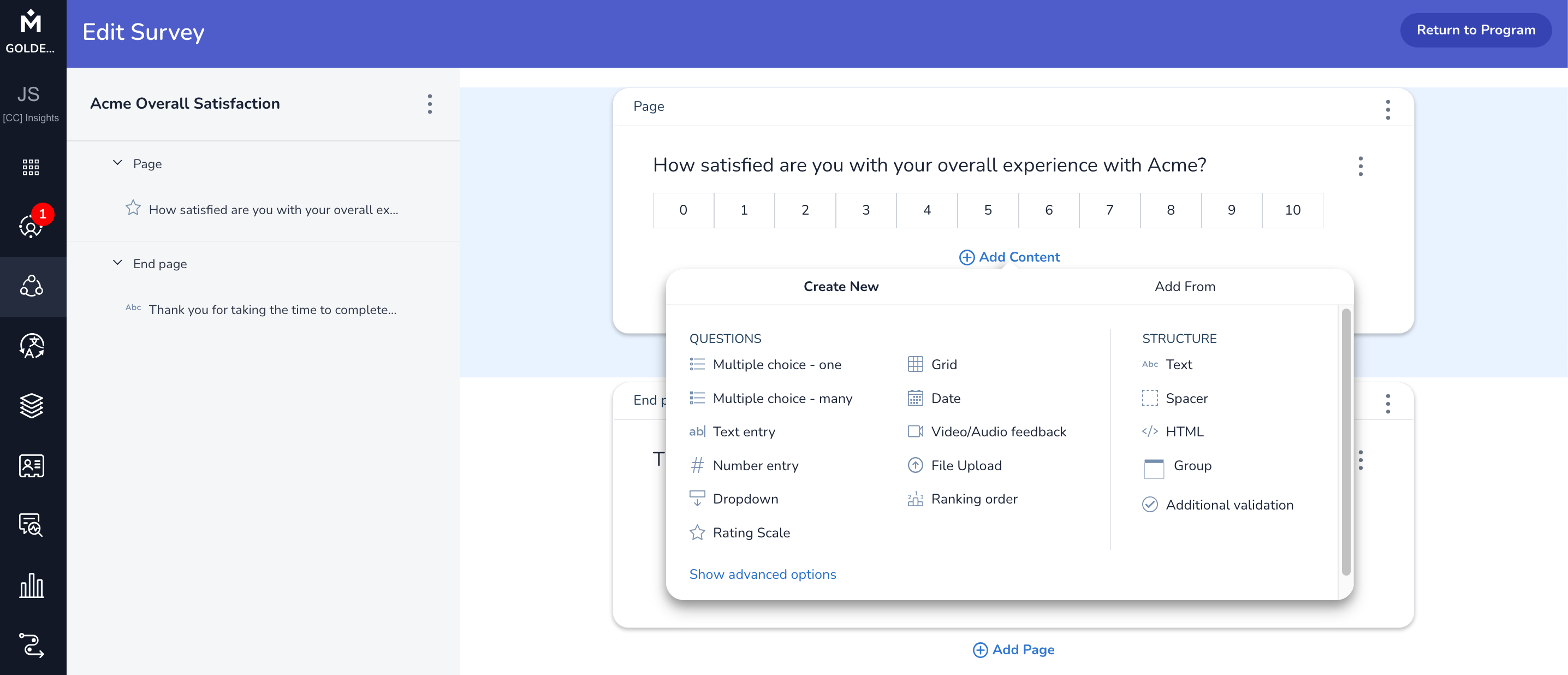
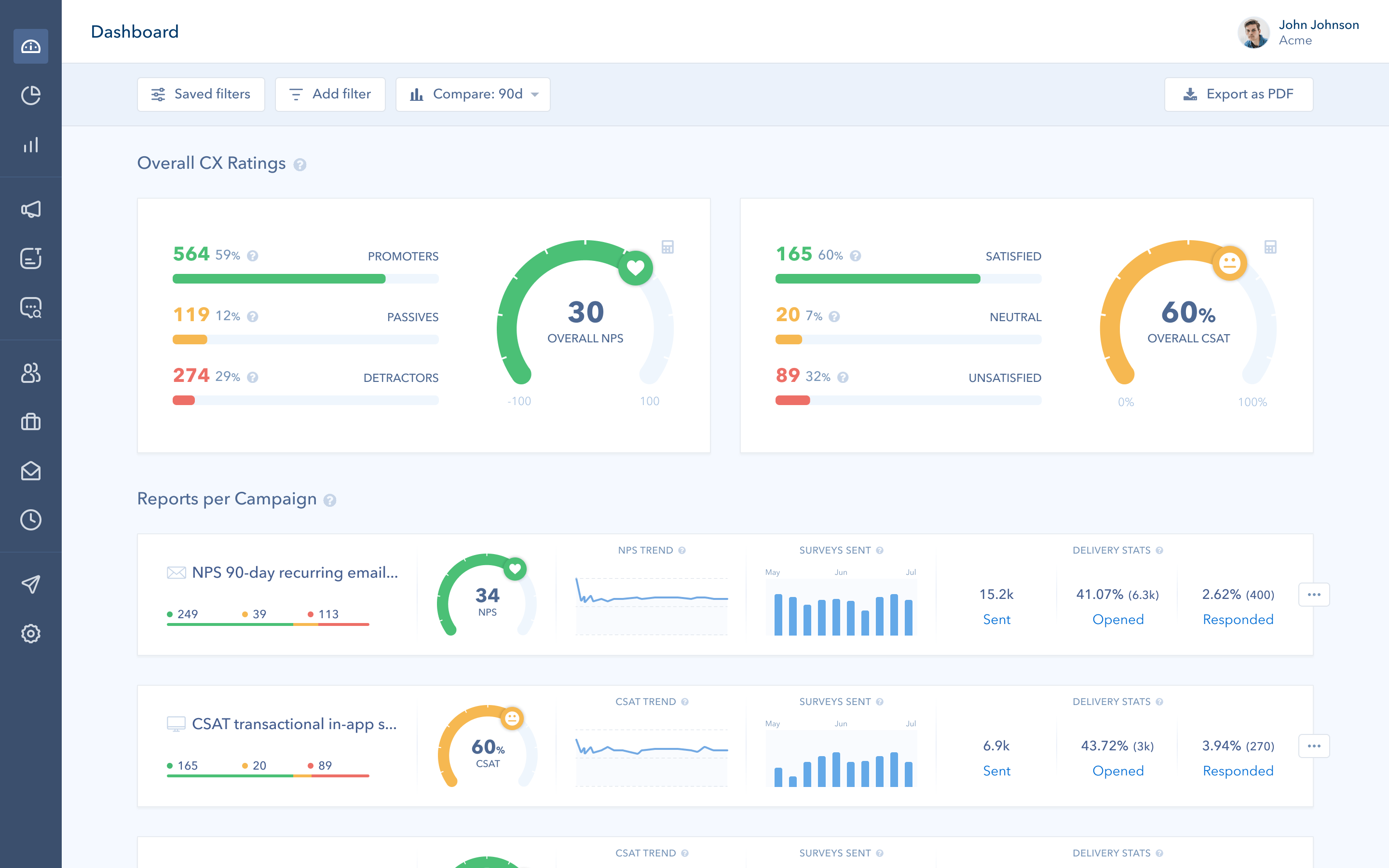
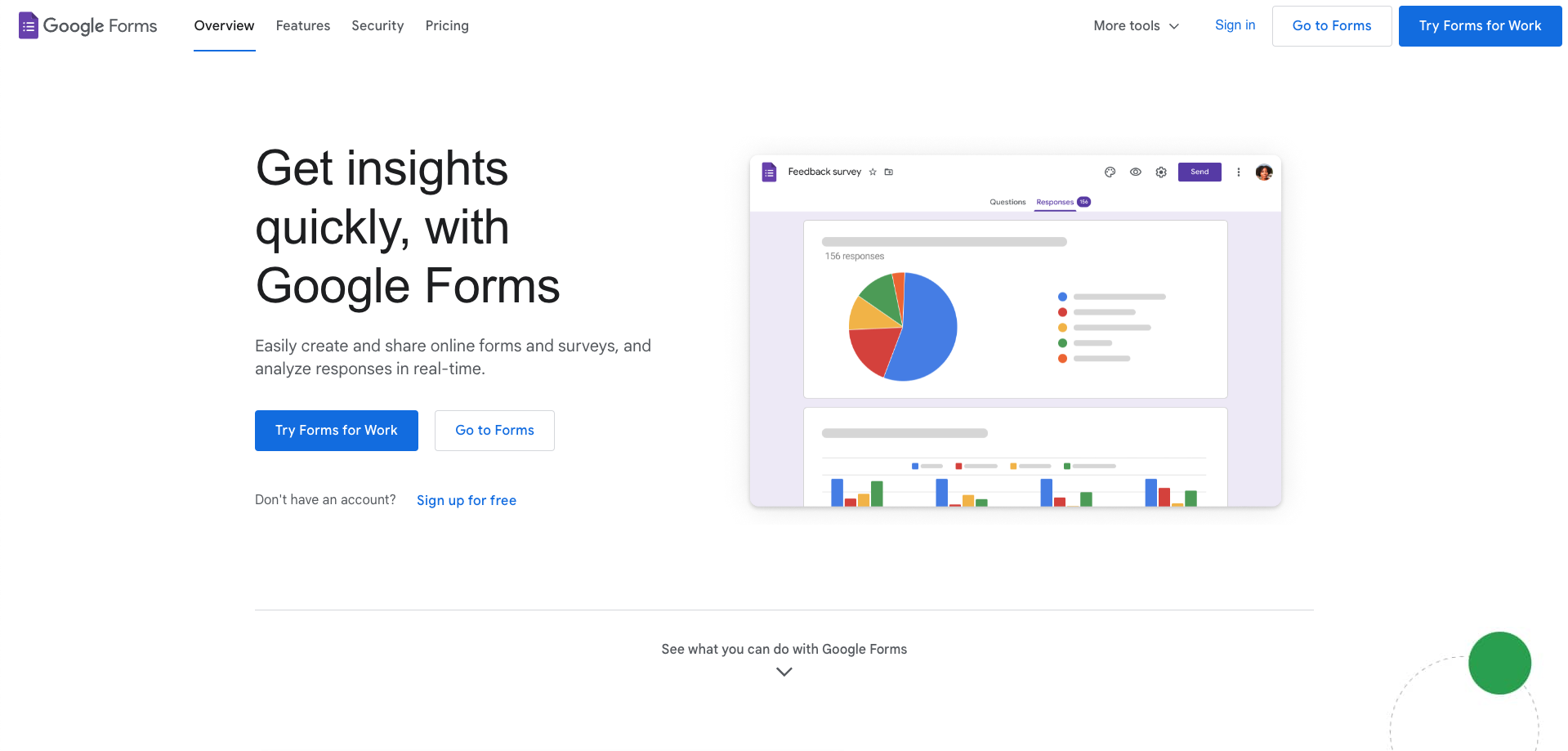


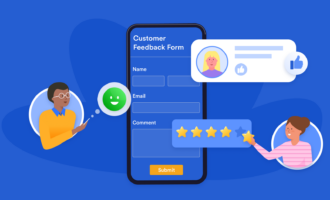

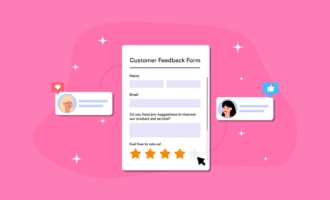







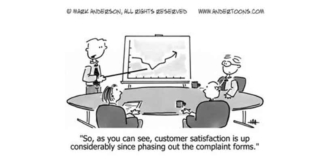






Send Comment: